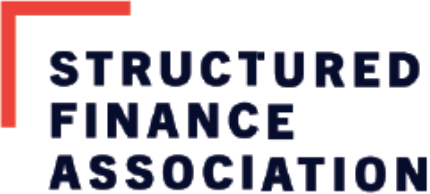SFA Submits Follow-up Letter to SEC on Re-Proposed Rule on Conflicts of Interest in Securitizations
article by Structured Finance Association
On July 13, 2023, SFA submitted a follow-up letter to the Securities and Exchange Commission (SEC) on their re-proposed rule aimed at preventing conflicts of interest in securitizations. SFA provided preliminary comments on the re-proposed rule to the SEC in a previous letter in March 2023. Since then, SFA engaged with its market-wide membership base to assess the full scope of the impact of the re-proposal. SFA members believe the current text of the sweeping re-proposed rule is critically flawed, conflicts with the goals of numerous prudential regulators, relies too heavily on the Volcker Rule as a precedent, and exceeds Congress’ original intent.
In its follow-up letter, SFA provides the Commission industry consensus-built recommendations that address the expected impediments to vital activities across a wide swath of investors, broker-dealers, corporate issuers, and servicers — and all their affiliates and subsidiaries. SFA’s suggested changes to the language of the rule will result in one that satisfies the SEC’s objective to protect investors while maintaining the healthy functioning of ABS markets.
“We expect the SEC to seriously consider our recommendations because the Commission is capable of addressing its concerns while also providing a workable compliance regime for investors and the consumers and businesses that rely on our markets for financing,” Michael Bright, CEO of SFA, said in a press release.
In its follow-up letter, SFA’s urges the SEC to use its regulatory authority to:
– Clarify the definition of “Sponsor” under securitization participant to specifically scope out long investors and other third-party service providers— including servicers, third-party asset sellers, and rating agencies — to ensure they are not subjected to costly and unnecessary compliance programs.
– Narrow the definition of “conflicted transaction” to prevent a sweeping prohibition of critical investing and financing activities.
– Incorporate a rebuttable presumption provision, multi-factor indicia of separateness test, or both as alternatives to safeguard innocent and normal course transactions.
– Clarify the meaning of “synthetic securitization” to cover synthetic ABS that only include transactions involving traditional ABS features and not other forms of credit risk transfers (CRT).
– Expand the existing proposed exemptions to allow the continuation of vital risk management tools such as risk mitigating hedging, among others.
– Provide market participants in the final rule with a feasible transition period to implement compliance programs.

